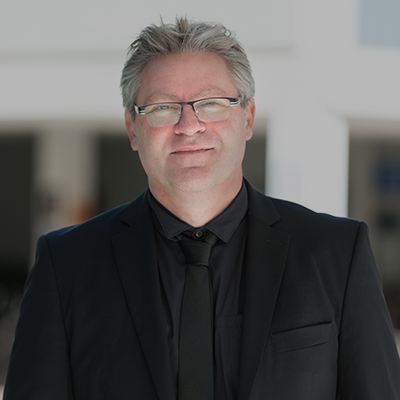Associate Professor of English Dr. Robert Rouse is spurring an interest in medievalism – the study of how the Middle Ages is recreated in modern literature – with a course based on George R. R. Martin’s Game of Thrones. Our Modern Medieval: The Song of Ice and Fire as contemporary Medievalism debuts in January 2016, and registration is already full. However, there will be another opportunity to take the course in 2016-17, when it will be taught as a wider-access ENGL 227.
The Faculty of Arts spoke with Dr. Rouse about what students can expect from the course, why public fascination with the European Middle Ages continues to grow, and his thoughts on the evolution of the fantasy genre.
What inspired you to create this course?
When I teach my Medieval literature courses, I usually spend a week or so at the end talking about how the medieval is constructed or represented today in media, literature, films, and video games. Students were interested in this, so I thought it’d be interesting to teach an entire course on the representation of the medieval in contemporary culture. And Game of Thrones is an obvious place to start because so many people watch it or read it.
What might surprise students enrolled in this course?
That it’s not just reading Game of Thrones. I hope it doesn’t surprise them, because it’s in the syllabus.
So for each of the seminars, we’re examining a key word like “women” or “chivalry” or “monsters”. In the week that we do “chivalry”, for example, we’ll talk about the entire Game of Thrones but we’ll also look at an extract from a 15th century manual on chivalry, and perhaps some of Malory’s Le Morte d’Arthur, which is a literary text about the death of chivalry. And throughout the course, we’ll think about how Martin is both inspired by the Middle Ages but also rewrites it for a modern audience.
Why are we so fascinated by the Middle Ages?
We’ve been fascinated by them since the moment that they ended. Shakespeare was fascinated by the Middle Ages while writing during the Renaissance. Tennyson wrote about King Arthur. The later Victorians wrote about the Anglo-Saxons. The medieval past has always operated as an imaginative space for us to look back upon and project our own issues, so it’s both that history, but also a dark mirror of our own society.
There’s also a distancing effect when we talk about the Middle Ages. If we look at Game of Thrones and its violent politics and problematic sexuality, these are things that also exist today that we don’t like talking about because it becomes too serious, too tricky, too dangerous, too real. For example, the media may talk about the place of women in Saudi Arabia and say, “Oh! The terrible medieval conditions that women have to live under!” Well, it’s not medieval because it’s now. But we take anything we don’t like about the modern world and we say it’s medieval. We drop it into this dustbin of history. So by talking about things in a fantasy or medieval setting, we can explore those narratives without having to admit that they’re happening now.
How have depictions of the Middle Ages shifted from the high fantasy genre of the 70s and 80s to Martin’s works? What explains this shift?
If we take a look at high fantasy, such as Tolkien’s novels and all the imitations of Tolkien that followed – they present a world where good and evil are black and white. It’s easy to tell who’s wrong and who’s right: the heroes are the hobbits, dwarves and elves, the bad guys are the goblins, trolls, and orcs.
Martin – by contrast – has very few monsters. He has the returning dragons and he has the White Walkers, which are up in the north doing their own thing, but most characters in Martin’s world are people. And none of them are entirely good or entirely bad because people are almost always shades of grey. So I think his work is much more modern in that regard.
Tolkien is writing during and in the aftermath of WWII, so he’s writing this grand narrative of the West versus the Nazis. And in the years after WWII, we moved into the Cold War, and again we’ve got this West versus East kind of binary.
Martin’s writing from the mid-90s to now. He’s American, so we’re looking at the wars and foreign policies America’s been involved with: Iraq, Afghanistan, Syria. And these are really hard to draw lines about who’s right and wrong. The Americans disagree within themselves about who’s right and wrong. It’s a world with many shades of grey when it comes to morality.
So I think that has a major part to do with it. Every author is influenced by the world in which they live, and Martin is interested in messy politics and complicated morality.
Do you see this genre maintaining its popularity?
Yes. People have been saying fantasy has been dying for a long time, but it actually goes through cycles. You look at the history of fantasy throughout the 20th century, it’s always reinventing itself. You get the Tolkien-esque cycle, and then you start getting writers reacting to that, and then you get other writers reacting to that. Genre fiction is too popular to disappear anytime soon.
Watch a Global News interview with Dr. Robert Rouse below:



